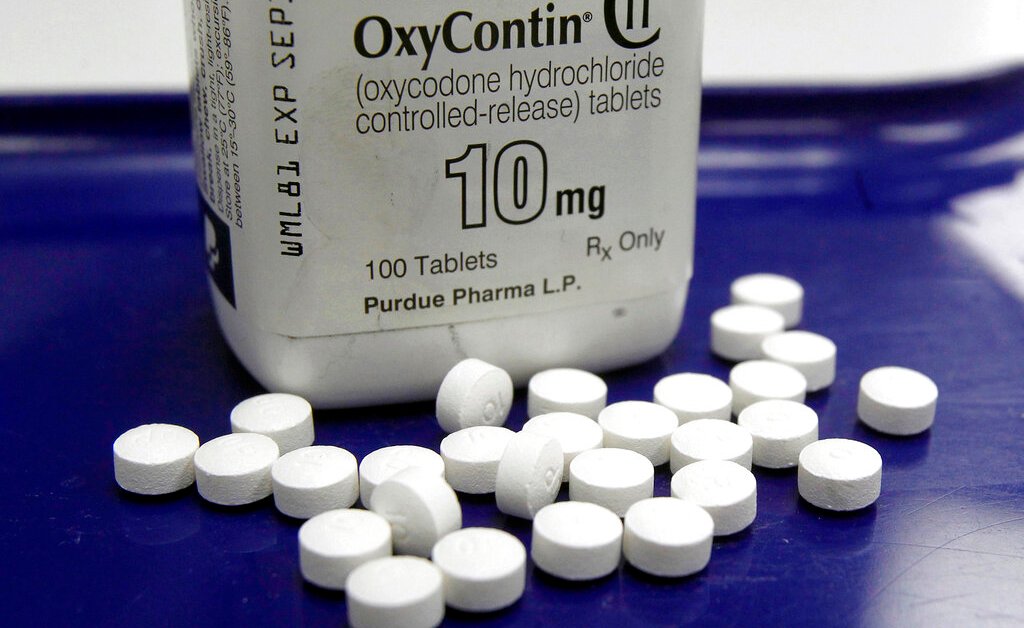Multiple Sclerosis (MS) is a chronic autoimmune disease that affects the central nervous system. It is characterized by inflammation and damage to the myelin sheath that surrounds the nerve fibers. This can cause a wide range of symptoms, including muscle weakness, difficulty with coordination and balance, and problems with vision, speech, and cognition.
Recent advancements in medical research have led to the development of a new type of therapy for MS called B-cell therapy. This treatment approach targets the specific cells in the immune system that are responsible for the inflammation and damage associated with MS.
How Does B-Cell Therapy Work for MS?
B-cell therapy is based on the idea of blocking the action of B-cells, a type of immune cell that is involved in the inflammatory process in MS. The therapy is designed to reduce the number of B-cells in the body, or to render them inactive, thereby reducing the immune system’s ability to cause inflammation and damage to the central nervous system.
There are two main types of B-cell therapy for MS: monoclonal antibodies and B-cell depletion therapy. Monoclonal antibodies are laboratory-made versions of natural antibodies that can target and neutralize specific cells in the body. In the case of MS, these antibodies are designed to target and neutralize B-cells that are involved in the inflammatory process.
B-cell depletion therapy, on the other hand, involves removing B-cells from the body using drugs that specifically target these cells. This can be done using drugs like rituximab, which are able to selectively eliminate B-cells.
What B-Cell Therapies Are Available?
So far, the FDA has approved two B-cell therapies for MS:
- Ocrelizumab (Ocrevus) in 2017. You get this through an IV at a hospital or doctor’s office. It’s used for relapsing types of MS as well as primary progressive MS.
- Ofatumumab (Kesimpta), in 2020. You or someone else can give you a shot of this drug at home. It’s used for relapsing MS and secondary progressive MS (in which you have relapses, but your condition still gets worse over time).
- Ublituximab-xiiy (Briumvi) in 2022. It is the first anti-CD20 monoclonal antibody for the treatment of relapsing multiple sclerosis (RMS), including clinically isolated syndrome, relapsing-remitting disease, and active secondary progressive disease, in adults. The first dose is taken by IV in 4 hours, followed by an infusion for 1 hour on day 15. Afterward, the drug is administered every 24 weeks.
Doctors also use rituximab(Rituxan) to treat MS. It’s mostly prescribed for blood cancers like non-Hodgkin’s lymphoma. It’s not yet FDA-approved to treat MS but is often used “off label” for that purpose. You take this medication through an IV at your doctor’s office.
Who Gets B-Cell Therapy?
B-cell therapy may not be the first MS treatment you try. Some doctors start with more traditional MS therapies, like interferon, says Ben Thrower, MD, medical director of the Andrew C. Carlos MS Institute at the Shepherd Center in Atlanta. Interferons work with your immune system to reduce inflammation.
Thrower says he tends to prefer more effective options, such as B-cell therapies, for people who’ve just been diagnosed. “I believe that being more aggressive at the onset makes the most sense,” to help people live their lives fully functional for as long as possible, he says.
But, he says, you must balance these benefits with a higher potential for side effects.
Possible side effects of B-cell therapy drugs include:
- Allergic reactions
- Reactions where you get the shot or IV
- A higher risk of infections, such as colds and skin infections
- Headaches
Some research has found that ocrelizumab may also increase your risk for certain types of cancer, including breast cancer. Ofatumumab has been linked to a rare and serious brain infection.
Neurologist Robert Bermel, MD, says he favors B-cell therapy for progressive primary MS. It’s the first treatment that’s been shown to keep disability from getting worse in this type of MS.
“B-cell therapies are excellent at reducing brain lesions and preventing relapses,” says Bermel, who is on staff at the Neurological Institute’s Mellen Center for Multiple Sclerosis at the Cleveland Clinic in Ohio.
What Are the Drawbacks?
Still, B-cell therapy isn’t for everyone. Your doctor will need to check your immunoglobulin levels, which measure how your immune system is working, before you start it. People with chronic infections like hepatitis B and C or tuberculosis can’t get B-cell therapy, Bermel says.
These drugs can also be very expensive. Before starting one, check with your insurance company to see what’s covered. In some situations, B-cell therapy may cost less than interferon. That was the case for Binns when she switched from private insurance to Medicare.
B-cell therapy prices may come down in the future, though. Researchers are developing biosimilars (a nearly identical copy of a drug) to rituximab. That’s key to driving down the cost, Thrower says.
Patients’ Viewpoint
Years after her diagnosis in 1994, Binns says she became an advocate when she heard Thrower giving talks about newer treatments like B-cell therapies.
She now has a port in her chest, which gives her veins a break from needles. She has an IV every 6 months, which takes a few hours. She’s able to drive herself there and home, instead of having to get find someone to take her.
For Eichman, B-cell therapy meant that MRI scans show no new lesions on her brain. Lesions affect how the brain functions. They cause problems ranging from memory lapses to speech difficulties, such as slurring words.
Binns notes that if you’re considering B-cell therapy, you should make sure you’re up to date on your vaccinations.
She’s had three doses of the COVID-19 vaccine, and her body is not yet producing any protective antibodies against the coronavirus. So she wears a mask and encourages others to do so.
“Once you’ve gotten B-cell therapy, it could be potentially 6 months to a year before your blood cells repopulate and you can build antibodies,” she says. Before starting treatment, ask your doctors what vaccines you should have and how far before your treatment starts should you get them.
If you’re curious about B-cell therapies, ask your neurologist at your next visit. Your doctor can help you decide if one of these treatments may be right for you.
Thrower says his practice encourages patients to take part in treatment decisions.
“We put all of the information and our preferences on the table, and then see how that matches up with the person wants,” he says.
The Impact of B-Cell Therapy on MS
B-cell therapy has been shown to be an effective treatment option for MS, with numerous clinical trials demonstrating its ability to reduce inflammation and slow the progression of the disease. For example, a study conducted by Medscape [1] found that therapeutic monoclonal antibodies (mAbs) were a “potent new tool for a molecular targeted approach to modify the course of multiple sclerosis (MS)”.
In addition to reducing inflammation and slowing the progression of MS, B-cell therapy has also been shown to improve the quality of life for individuals with MS. For example, a blog post on WebMD [2] describes how living with a chronic condition like MS can impact one’s identity. The author, Mayteé Ramos, was diagnosed with relapsing-remitting MS in 2015 and has since become a support group leader for the National Multiple Sclerosis Society. She writes about how the advancements in medical research, including the development of B-cell therapy, have given her hope and a renewed sense of purpose.
Conclusion
In conclusion, B-cell therapy is a promising treatment option for individuals with Multiple Sclerosis. Its ability to reduce inflammation and slow the progression of the disease, as well as improve the quality of life for individuals living with MS, make it a valuable addition to the available treatments. As research in this field continues, it is likely that even more effective treatments will be developed in the future.
This content should not be accepted as official medical, legal or professional advice.












